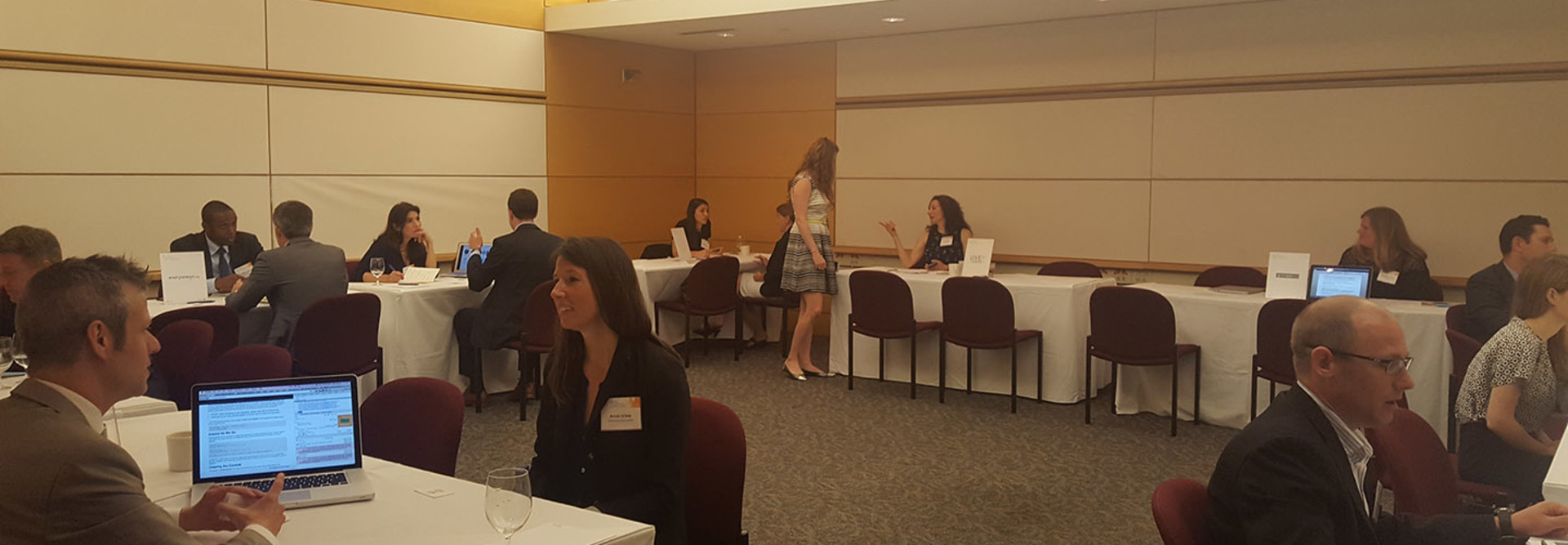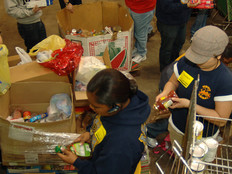SIS 2016: Tech Startups Focus on STEM, Finance and Education for the Greater Good
Not every technology startup or tech-focused startup can change the world for the better, but few of them can do it without financial support. That’s what several of them were searching for during the “Tech for Good” session at this week’s 2016 Social Innovation Summit in Washington, D.C.
With an abundance of would-be sources of funding on hand, the startups pitched potential corporate partners in a speed-dating format, explaining their mission and their needs in the hopes of getting support. Melissa Lambrechts, marketing program manager of corporate verticals at CDW, says that the session is great way to set the tone for the Summit.
“We’re here for social change, we’re here for good, and we’re going to use technology and innovation to do it,” she says. Lambrechts notes that the startups can get more than or something other than money, and may receive time, volunteers, or resources like software licensing and services from corporate partners. “There are other ways besides cutting a check,” she says. “What resources do the corporate executives have to fill gaps that they’re missing?”
Corporate partners at the event included Blackbaud, Discovery Education, Hewlett-Packard Inc., Kaiser Permanente, the Kauffman Foundation, Lockheed Martin, Splunk, UBS and Venture for America.
Putting a Spotlight on STEM Education and Coding
Many nonprofits are focused on expanding science, technology, engineering and mathematics (STEM) education. One at the session was STE(A)M Truck, an Atlanta-based nonprofit that works directly with public schools to give students a 20-day course that allows them to take a hands-on approach to science. “Kids walk outside, tackle a problem, design a solution and they get their hands dirty and solve it,” says Jason Martin, founder and executive director of STE(A)M Truck (the “A” stands for arts).
In a high-tech truck tricked out with 3D printers, laser cutters, chop saws, and hand tools, students can tackle projects from creating benches and murals for school hallways to building solar-powered Bluetooth speakers. Recently, Martin says, another nonprofit, re:imagine/ATL, which focuses on film production, reached out to partner with STE(A)M Truck to help a student born without arms operate a film camera. The students rose to the challenge and created a harness and rig that can be controlled by a person’s feet, Martin says.
Los Angeles-based Project Scientist, another organziation at the session, is a STEM-focused nonprofit which offers a six-week summer camp for girls aged 4 – 12 to learn about science and engineering on the campuses of the California Institute of Technology, the University of Southern California and the University of North Carolina at Charlotte. The organization also provides year-round “expeditions” to STEM-oriented companies.
During the summer program, according to founder and chairwoman Sandy Marshall, each week has a theme; this summer’s selections include “tech and innovation” to let the girls use Raspberry Pi to create their own computers and code on the Pis.
Every day, a female STEM professional comes to speak to the girls. The program partners with companies like Duke Energy, Siemens and Google Fiber.
Yet another STEM-oriented nonprofit at the session was Operation Spark, which offers a “coding school” over the course of three or four months to help economically disadvantaged individuals seeking high-paying software jobs. John Fraboni, CEO of Operation Spark, says that the organization takes people “from zero knowledge to a $100,000” job through an intensive process.
After a two-week prep stage to test a participant’s aptitude for coding and desire — during which they code part-time — participants go through a boot camp and spend a month coding (60 hours) and learning the fundamentals of web development. After that, participants enter an immersion phase in which they code six days per week for 11 hours per day to become a full-stack engineer. Fraboni says all of the programs’ graduates are employed at jobs with salaries ranging from $50,000 per year to $120,000.
The program, based in New Orleans, is important, Fraboni says, because the city’s economy needs to diversify beyond oil and gas and low-wage service jobs. It’s especially important to help low-income people jump into higher-wage jobs. “We have to modernize our workforce,” he says. “A software economy is the smartest thing to head towards.”
Helping Students Gain Education and Credit
Another nonprofit at the event was Credit Do, which is developing a loyalty savings card. Low-income high school students can earn credit in stores for performing community service, and after making a purchase in those stores receive a matching deposit into a savings account that will help them offset the costs of higher education.
Chris Avila Hübschmann, founder and managing director of Credit Do, says that for now the program is just in Manhattan’s Lower East Side, but that Credit Do has been invited by the Stanford University ChangeLabs to develop the technology needed to scale it to other school systems around the country. Hübschmann says that the nonprofit is looking to develop a sleek card that will appeal to teenagers and not have any stigma attached to it when they use it at checkouts.
The organization also is seeking introductions to financial services and merchant services partners to ensure that the matching deposit can happen at all checkouts regardless of the payment processing terminal technology. Hübschmann also says Credit Do needs to make sure that merchants are getting a competitive service return rate for participating. She adds that one student in the program, which has 326 participants, generates an average of $150 in extra sales for participating stores.
Explore all of BizTech's 2016 Social Innovation Summit coverage, including articles and video interviews with industry leaders, on our SIS landing page.









